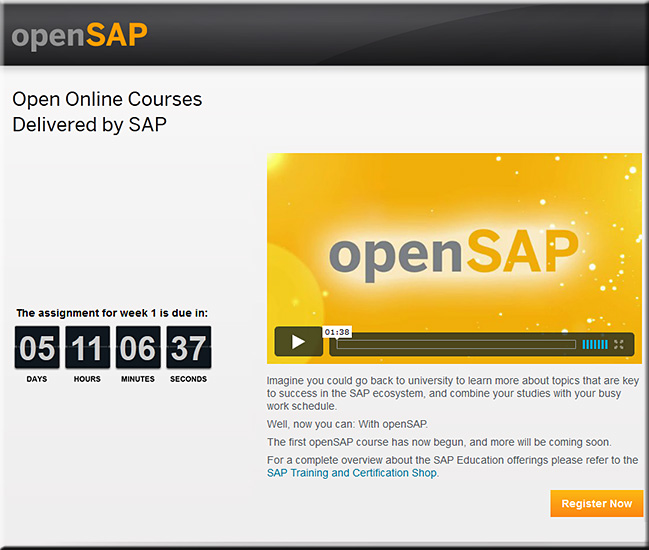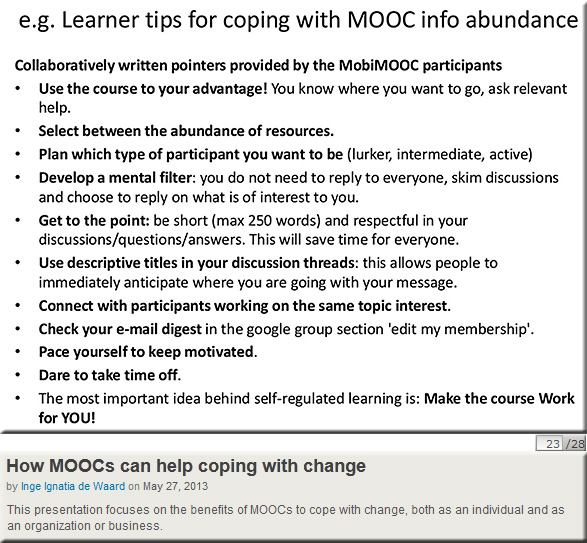A new use for MOOCs: Real-world problem solving — from blogs.hbr.org by Zafrin Nurmohamed, Nabeel Gillani, and Michael Lenox
Excerpts:
However, directly comparing MOOCs to traditional classrooms may prevent us from realizing the true potential of global online education. Perhaps it’s time we stop trying to fit MOOCs into old educational molds and start considering how we can harness their powers in new and exciting ways.
…
In a knowledge economy, life-long learning is not confined to a canonical classroom, and students enrolling in MOOCs cannot be compared with those enrolling in traditional higher education settings. We need to rethink what constitutes “a student.” Today’s students are astute, have work experiences, and in many cases, have already developed a set of core competencies. Moreover, students in MOOCs offer unique international perspectives that would be the envy of any business school classroom.









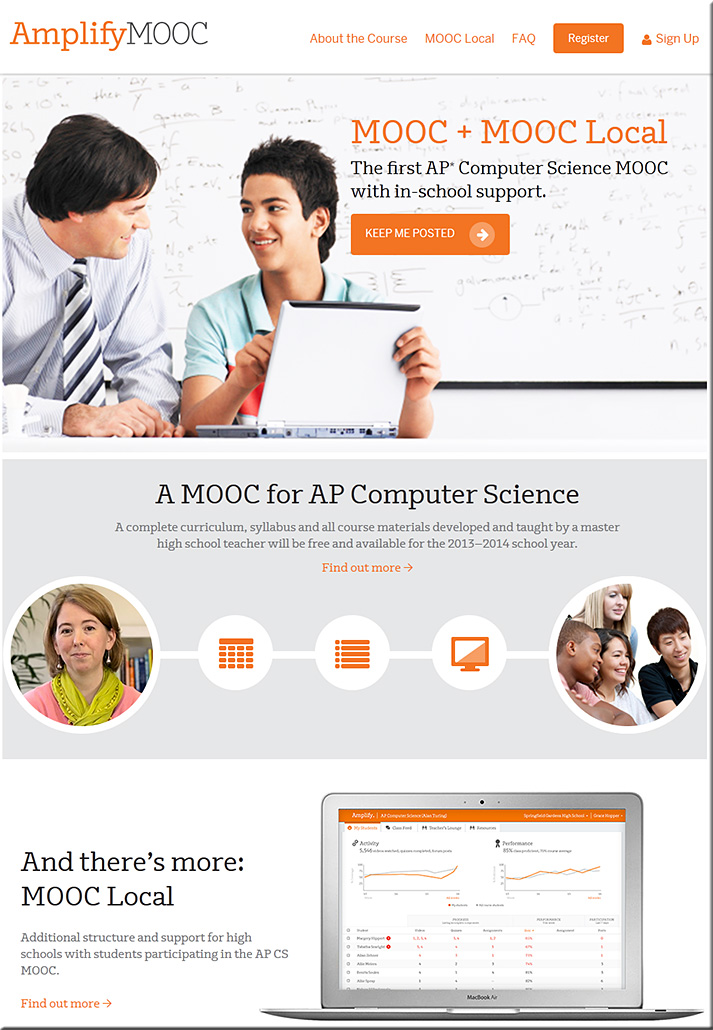

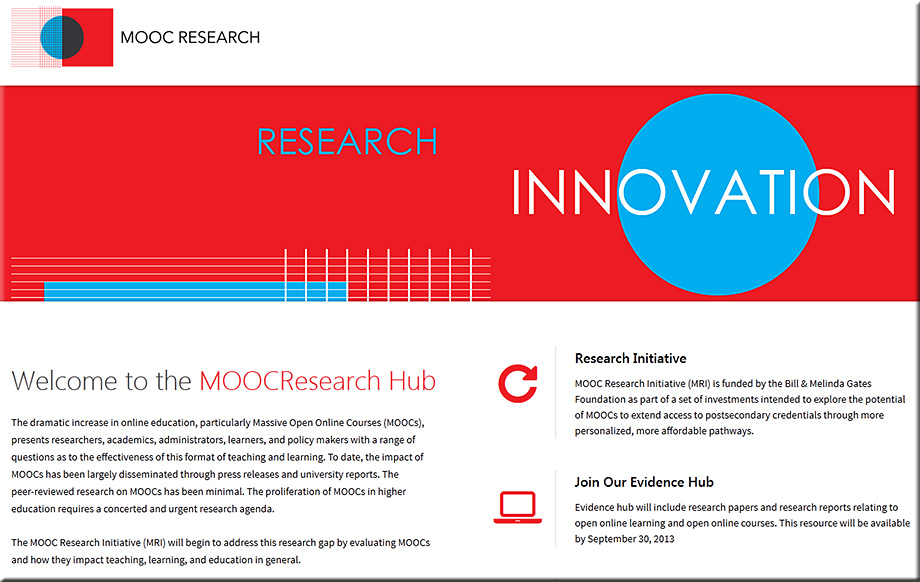
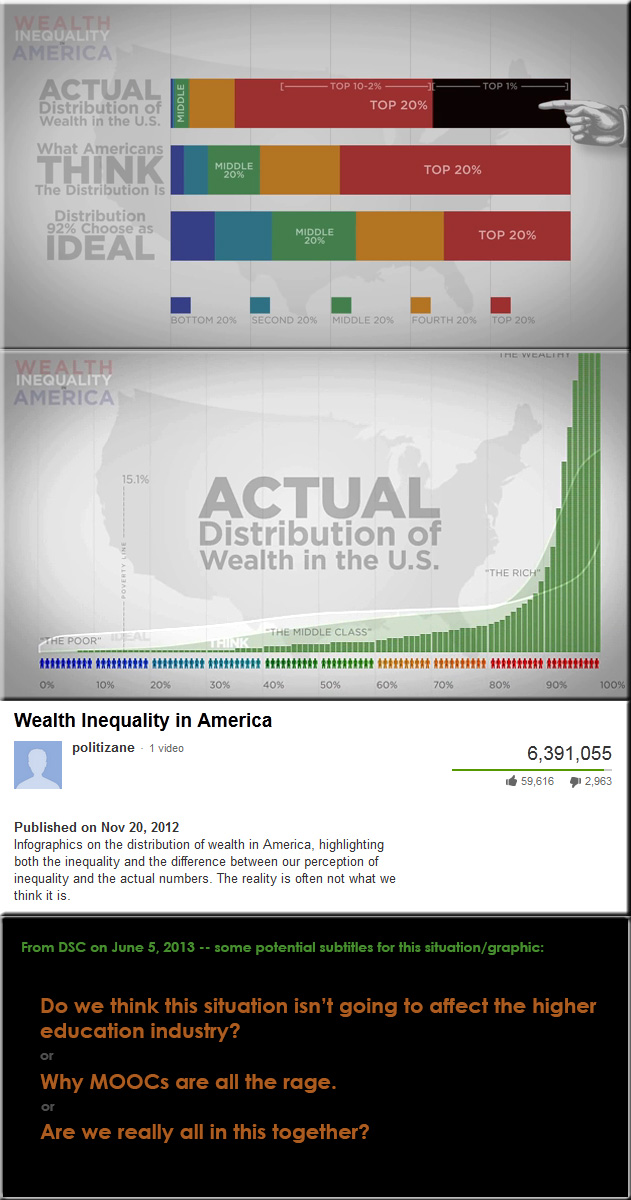

![The Living [Class] Room -- by Daniel Christian -- July 2012 -- a second device used in conjunction with a Smart/Connected TV](http://danielschristian.com/learning-ecosystems/wp-content/uploads/2012/07/The-Living-Class-Room-Daniel-S-Christian-July-2012.jpg)

